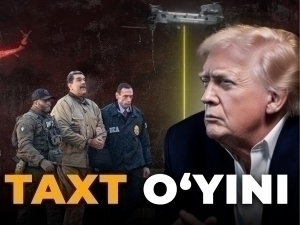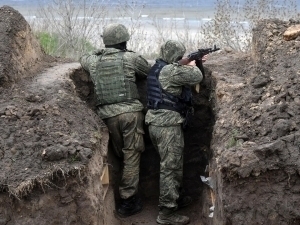Migrant abuse in Moscow: Diplomatic tensions with Kyrgyzstan and Uzbekistan
Review
−
19 April 2025 6967 5 minutes
The events surrounding the shocking incident that took place on April 10 at the “Bodrost” bathhouse in Moscow are still causing a stir. Russia and Kyrgyzstan have been engaged in a kind of diplomatic back-and-forth ever since, as controversy over the brutal treatment of Central Asian migrants—especially Kyrgyz nationals—by Russian security forces continues. While the situation may not have escalated to the level of tension seen between Baku and Moscow following the recent Embraer 190 plane crash in Aktau, it is nonetheless a serious diplomatic issue. For over a week, the foreign ministries of both countries have been working to resolve the matter.
The diplomatic exchange began after Russian OMON special forces conducted a particularly harsh raid at the bathhouse, where Central Asian migrants—reportedly from Kyrgyzstan and Uzbekistan—were resting. In shocking scenes that quickly spread online, the migrants were humiliated, forced to lie half-naked, face down, and crawl on the ground. Some appeared to have visible injuries. According to Readovka, one of the first outlets to report on the raid, around 40 people were detained. Several were charged under the Russian Code of Administrative Responsibility for “violating the rules of entry and stay in the country,” while the unofficial leader of the group may face criminal charges for “organizing illegal migration.”
The Bodrost bathhouse, according to social media reports, is known for attracting visitors from Uzbekistan and Kyrgyzstan. The video footage of the raid was shared with captions such as “Many Kyrgyz people come here.” It’s claimed that local residents had complained about the migrants allegedly taking over the facility and being unfriendly toward Russians, prompting law enforcement to step in. However, the treatment migrants received at the hands of security forces was inhumane and degrading—a sentiment clearly reflected in the disturbing visuals from the scene.
Kyrgyzstan Demands Answers
The Kyrgyz government's official response came four days after the raid. On April 14, Kyrgyz Deputy Foreign Minister Almaz Imangaziyev met with Sergey Vakunov, Russia’s Ambassador to Kyrgyzstan, to formally protest the treatment of Kyrgyz citizens. Imangaziyev demanded a full investigation and appropriate measures against any Moscow law enforcement officers who used excessive force. An official diplomatic note was submitted.
The Kyrgyz side also urged Russia to take steps to prevent such incidents from recurring, warning that such actions could damage the strategic alliance between the two countries.
Given reports that both Uzbek and Kyrgyz migrants were present at the bathhouse, there is reason to believe that Uzbek citizens may also have been among the victims. Following the Kyrgyz Foreign Ministry’s response, Uzbekistan’s Oliy Majlis Committee on International Affairs, Defense, and Security issued a parliamentary request to Foreign Minister Bakhtiyor Saidov regarding measures to protect Uzbek citizens abroad.
Ahror Burhonov, spokesperson for Uzbekistan’s Foreign Ministry, swiftly responded, emphasizing that protecting the rights of Uzbek nationals abroad is always a top priority. Meanwhile, Bobur Bekmurodov, Chairman of the nationwide “Yuksalish” movement and an MP, addressed the incident on social media, reminding Russia what it means to be an ally.
“Have you heard of Russian citizens being discriminated against, humiliated, or beaten in Uzbekistan? NO! Our citizens must not be treated like this in Russia! This is what an alliance should look like,” he wrote.
Russia’s Attempt at Justification
Seven days after the incident, Russia’s Foreign Ministry finally issued a statement. It claimed the April 10 operation was a routine inspection and not targeted at any nationality. According to the ministry, during a regular inspection of public buildings in Moscow’s Timiryazevsky district—including the Bodrost bathhouse—almost half the foreign nationals present were found to be in Russia illegally. Of the 59 foreigners detained, 25 had allegedly violated immigration laws.
Some of the detainees, the statement noted, were even suspected of links to radical groups. The ministry expressed “regret” that these individuals had disregarded Russian laws and “resisted” Russian society and the state.
In addressing the disturbing videos of the raid, the ministry said the migrants had resisted arrest, prompting law enforcement to respond accordingly. In doing so, the Russian Foreign Ministry effectively justified the violence carried out during the raid.
On April 18, Ambassador Sergey Vakunov gave an interview to TASS, urging both sides not to escalate the situation. He downplayed the reaction of Kyrgyz officials and citizens as “emotional.”
“Of course, this situation does not reflect our relations with Kyrgyzstan,” he said. “Let’s not escalate it. We’ll wait for a full and thorough investigation before drawing conclusions. Honestly, I believe much of this is just an emotional reaction.”
Since there are assumptions that Uzbek citizens may also have been among those targeted in the raid, QALAMPIR.UZ contacted Foreign Ministry spokesperson Ahror Burhonov to clarify. He confirmed that investigations are still ongoing and that official information will be released soon.
Live
All



